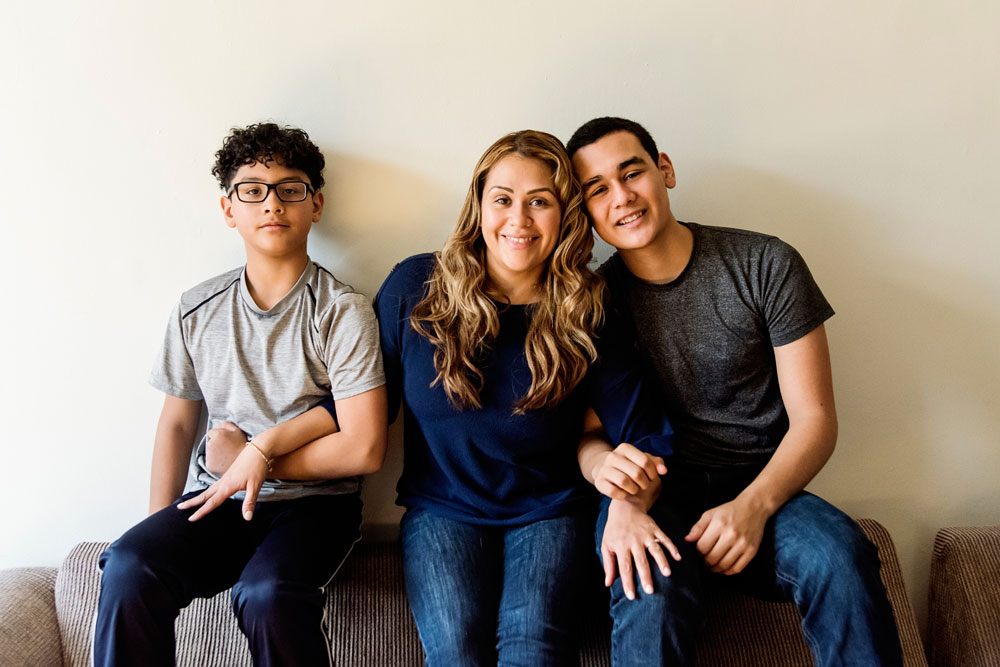Parenting comes with many challenges, and one of the greatest is keeping teens on the right path. When young people feel lost, they are particularly susceptible to negative peer pressure, which can lead to unhealthy habits or even criminal activity. A stable and nurturing home plays a critical role in shaping a teen’s choices, and a strong support system can help prevent risky behavior.
A positive home environment does not mean being overly strict or controlling. The goal is to develop self-discipline, responsibility, and confidence, which leads to good decisions, even when no one is watching.
Building Strong Family Relationships
A supportive home starts with strong relationships. Teens need to know they are valued, heard, and understood. If they feel ignored or constantly criticized, they may seek validation elsewhere, sometimes in places that lead to trouble.
Make time for meaningful conversations. Instead of asking generic questions like, “How was your day?” try something more specific, such as, “What was the best part of your day?” or “Did anything frustrate you today?” This promotes deeper conversations and reduces one-word answers.
It’s also essential to participate in activities together. Cooking a meal, playing a game, or going for a walk may seem small, but these moments strengthen connections. When teens feel secure in their family relationships, they are less likely to be tempted by negative influences.
Setting Clear Expectations and Boundaries
Teens need structure. Without clear rules, they may push limits and test boundaries in unhealthy ways. But setting rules does not mean being overly rigid. The key is consistency. If consequences change depending on the parent’s mood, teens will feel confused and resentful, eroding trust and respect for authority.
Talk about expectations openly. Discuss topics like curfews, responsibilities, and respect. Instead of saying, “Because I said so,” explain the reasons behind the rules. For example, “We have a curfew so you get enough rest for school” allows a teen to understand the purpose rather than seeing it as an unnecessary restriction.
Discipline is necessary, but it should be paired with guidance and support. When a teen breaks a rule, use it as a teaching moment instead of just handing out punishment. Ask, “What could you have done differently?” This approach builds critical thinking skills, self-awareness, and personal responsibility.
Encouraging Healthy Friendships
Outside the home, healthy friendships also shape decision-making. When teens surround themselves with positive influences, they make better choices. If their friends engage in reckless behavior, they may feel pressured to follow along.
Encourage friendships with people who share similar values and beliefs. Teens involved in sports, church, or community programs connect with peers who have positive goals and attitudes.
Help them recognize unhealthy friendships. Instead of saying, “I don’t like that friend,” with no further comment, ask, “How do you feel after spending time with them?” This will foster self-reflection and thoughtfulness.
Social media also affects friendships in powerful ways that most parents find difficult to understand. Teens may feel pressured to present themselves inauthentically to gain online approval. Teaching them to set boundaries and take breaks can prevent the negative influences of social media from shaping their behavior.
Keeping Teens Engaged in Positive Activities
Teens make better choices when they stay engaged in positive activities. Too much free time without direction can lead to risky behavior. Structured activities keep them focused, reducing boredom.
Encourage teens to participate in sports, explore the arts, perform volunteer work, or take on a part-time job. These activities foster discipline, teamwork, and responsibility while keeping them productive.
Community service also gives teens a sense of purpose. Helping others builds empathy and responsibility. It also connects them with positive role models and relationships outside the home.
Addressing Stress and Emotional Well-Being
Teens deal with stress from school, relationships, and self-identity. Without healthy coping skills, they may seek escape through risky behavior. Recognizing stress and offering support can help them make better choices.
Talk openly about emotions. Sometimes, teens don’t need advice—they just need someone to listen. Creating a judgment-free space offers a higher level of comfort to express their feelings.
Encourage healthy coping strategies like exercise, hobbies, or talking to a trusted adult. If a teen struggles with ongoing anxiety, depression, or frustration, seeking the assistance of a counselor or mentor can be a productive way to manage emotions.

Recognizing Warning Signs and Taking Action
Even in the most supportive homes, teens may still face struggles. Recognizing early signs of trouble can prevent problems down the road.
Signs that a teen may be heading toward risky behavior include:
- Sudden changes in mood or attitude
- Loss of interest in activities they once enjoyed
- Avoiding family or withdrawing from conversations
- Skipping school or falling behind academically
- Hanging out with new friends who seem to have a negative influence
If any of these warning signs appear, approach the situation with care. Jumping to accusations may cause defensiveness. Instead, express concern and ask open-ended questions.
If a teen is struggling beyond what can be handled at home, professional counseling can make a difference. Programs that offer guidance and structure provide the support needed to get back on track.
Providing Positive Role Models
Teens look up to the people around them. If they see adults engaging in respectful, responsible behavior, they are more likely to follow that example. On the other hand, if they witness dishonesty, aggression, or disregard for rules, they may believe those behaviors are acceptable.
Demonstrate accountability in daily life. If a mistake is made, admit it and show how to correct it. If stress becomes overwhelming, handle it maturely instead of reacting with frustration. These small actions teach teens to respond to challenges without resorting to destructive behavior.
Sometimes, outside role models can also have a significant impact. Coaches, teachers, mentors, or faith leaders offer guidance in ways that complement parental influence. Encouraging teens to connect with positive authority figures outside the home reinforces strong values.
Creating a Home Where Teens Feel Supported
It’s crucial to establish a home that offers guidance, sets clear expectations, and allows teens to grow while feeling safe. A positive environment doesn’t prevent mistakes but helps teens learn from them.
Build strong family connections, promote responsibility, and encourage healthy friendships. These foundations promote positive choices and behavior. Challenges will come, but a home filled with love, respect, and understanding gives teens the best chance to succeed.
Looking for ways to create a positive home environment for your teen? At Paul Anderson Youth Home, we provide the support and guidance needed to help young people make better choices. Contact us today to learn more!
Stay Updated
Sign up for our monthly newsletter and weekly devotional











